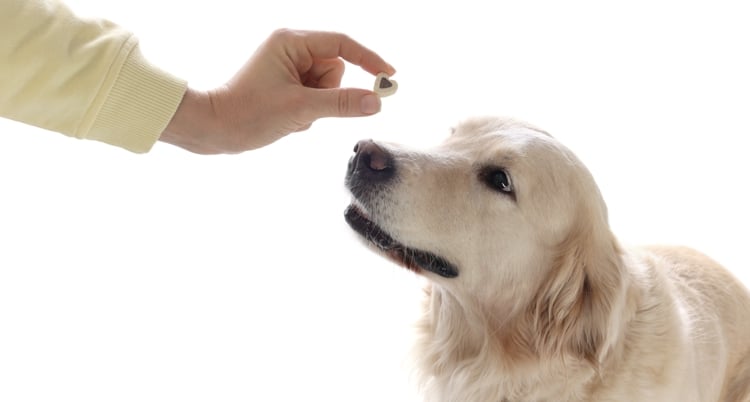
To maintain good health and a sound physical condition, in addition to a well-balanced diet, dogs need vitamin supplements. If staple nutrients such as protein, fat, and carbohydrates help provide energy for the body, vitamins act as a catalyst to assist metabolic processes inside the body to function smoothly and properly, maintain stable health, and prevent common diseases.
Common essential vitamins for pet dogs include:
Vitamin A
Vitamin A is very significant in your dog's diet. It plays a key role in enhancing vision, immune system, growth, fetal development, and organ functions. However, Vitamin A can also be the most dangerous if overused, so be careful when using it for dogs. Top Vitamin A-rich foods that are safe for dogs include carrots, eggs, fish oil, liver, pumpkin, spinach, and sweet potatoes.
Vitamin B
Vitamin B is a prominent player in maintaining good health for dogs. It has a direct impact on brain function, energy levels, and cellular metabolism. Vitamin B complex helps prevent infections and promote cellular health. Food items rich in Vitamin B that are dog-friendly include whole grains, beans, some types of nuts, green leafy vegetables, beef, pork, liver, and dairy products.
Vitamin C
All tissues of a dog's body need Vitamin C to grow and regenerate themselves. This vitamin is also essential for many body functions, including supporting immunity, repairing tissue damage, maintaining cartilage, bones, and teeth, and boosting iron absorption. Vitamin C is also an important antioxidant, helping to slow down the aging process and the neurological function deterioration in dogs. Vitamin C-rich foods that are safe for dogs include vegetables, citrus fruits, berries, and organic meats.
Vitamin D
Vitamin D boosts and balances your dog's intake of minerals such as calcium and phosphorus to keep bones, teeth, and muscles healthy. You can safely provide Vitamin D for dogs from fish, marine fish oil, egg yolks, beef, liver, and dairy products.
Vitamin E
Vitamin E is a fat-soluble vitamin crucial for cell functions and lipid metabolism. If your dogs do not consume enough Vitamin E, they can suffer from muscle and eye degradation as well as reproductive problems. Dog-friendly foods that are high in Vitamin E include green leafy vegetables, some types of nuts, whole grains, salmon, etc.
